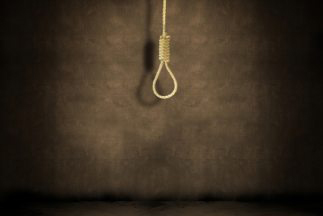Bangladesh President Abdul Hamid must stay the execution of opposition political leader Motiur Rahman Nizami, said the ICJ today.
On 5 May 2016, the Supreme Court of Bangladesh dismissed a petition by Motiur Rahman Nizami to review its previous decision confirming his death sentence.
He is now at imminent risk of execution.
“Bangladesh must stay this execution, and end its continued and unlawful use of the death penalty,” said Sam Zarifi, ICJ’s Asia-Pacific Director. “The death penalty is not justice and is the ultimate form of cruel and inhuman punishment.”
Motiur Rahman Nizami, a leader of the Jamaat-e-Islami party, was found guilty of crimes committed during the 1971 war for independence in Bangladesh, including genocide, torture, and the murder of intellectuals, and sentenced to death by the International Crimes Tribunal (ICT) in October 2014.
The Supreme Court confirmed this decision and sentence on appeal earlier this year, following which Motiur Rahman Nizami filed his review petition.
Thus far, four individuals have been executed based on convictions by the Bangladesh International Crimes Tribunal: Salahuddin Quader Chowdhury and Ali Ahsan Mohammad Mujahid were executed in November 2015; Muhammad Kamaruzzaman was executed in April 2015; and Abdul Qader Mollah was executed in 2013. Several others have been sentenced to death.
“The perpetrators of the atrocities committed during the 1971 war for independence must be brought to justice and held to account for their crimes,” said Zarifi.
“However, another execution on the basis of a flawed trial that is inconsistent with international human rights standards undermines justice, and must be stopped,” he added.
Bangladesh is party to most of the principal human rights treaties, including the International Covenant on Civil and Political Rights, which obliges it to respect the right to a fair trial.
The ICJ has previously raised concerns that trials before the ICT are not in compliance with Bangladesh’s international legal obligations, and international standards for fair trials.
According to the ICJ, there are serious procedural flaws at all stages: pre-trial release has been routinely and arbitrarily denied; witnesses have been abducted and intimidated; and there have been credible allegations of collusion between the Government, prosecutors and judges.
Background information
In a statement on 8 April 2016, the UN Office of the High Commission of Human Rights reaffirmed that trials before the ICT in Bangladesh did not met international standards of fair trial and due process, and that the imposition of a death sentence in such circumstances constitutes a violation of the right to life.
The ICJ opposes capital punishment in all cases without exception. The death penalty constitutes a violation of the right to life and the right not to be subjected to cruel, inhuman or degrading punishment.
In December 2014, the UN General Assembly adopted a resolution, for the fifth time since 2007, emphasizing that that the use of the death penalty undermines human dignity and calling on those countries that maintain the death penalty to establish a moratorium on its use with a view to its abolition.
A majority of 117 UN Member States voted in favor of a worldwide moratorium on executions as a step towards abolition of the death penalty.





